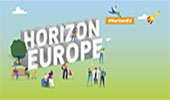International mobility at the Maritime University of Szczecin under the ISDEGO project – Sustainable Urban Development Goals in Transport Bachelor Degree, Erasmus+ programme.
As part of the ISDEGO project, representatives of the National Transport University took part in an international mobility programme held on 17–21 November 2025 at the partner university. The training programme included intensive technical sessions, laboratory work, lectures, and practical visits aimed at deepening knowledge in the fields of transport technologies, logistics, environmental monitoring, and modern digital platforms.
Participants from NTU:
- Stanislav Popov – Associate Professor of the Department of Transport Systems and Road Safety
- Arsen Klochan – Associate Professor of the Department of Information and Analytical Activities and Information Security
- Artem Oharkov – Senior Lecturer of the Department of Information Systems and Technologies
The first day began with an official presentation of the Maritime University of Szczecin delivered by Stanisław Iwan. Participants were introduced to the university’s structure, scientific laboratories, academic programmes, and international projects.
A series of practical sessions took place, and one of the key activities involved measuring and analysing traffic parameters using modern equipment. Under the guidance of Mariusz Nürnberg, the participants acquired practical skills in working with measurement systems, learned to use automated road sensors, and mastered the methodology for collecting and processing traffic flow data.
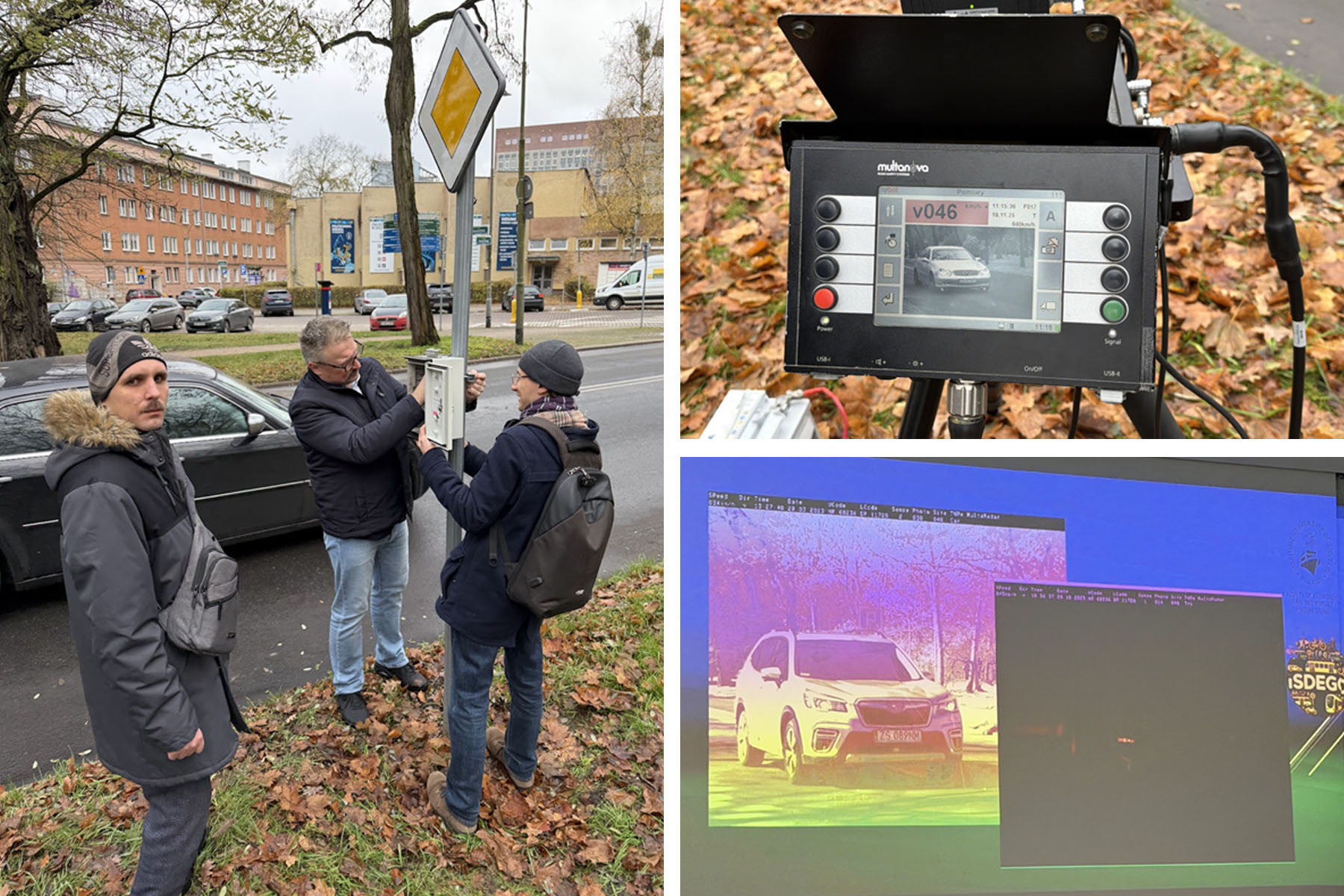
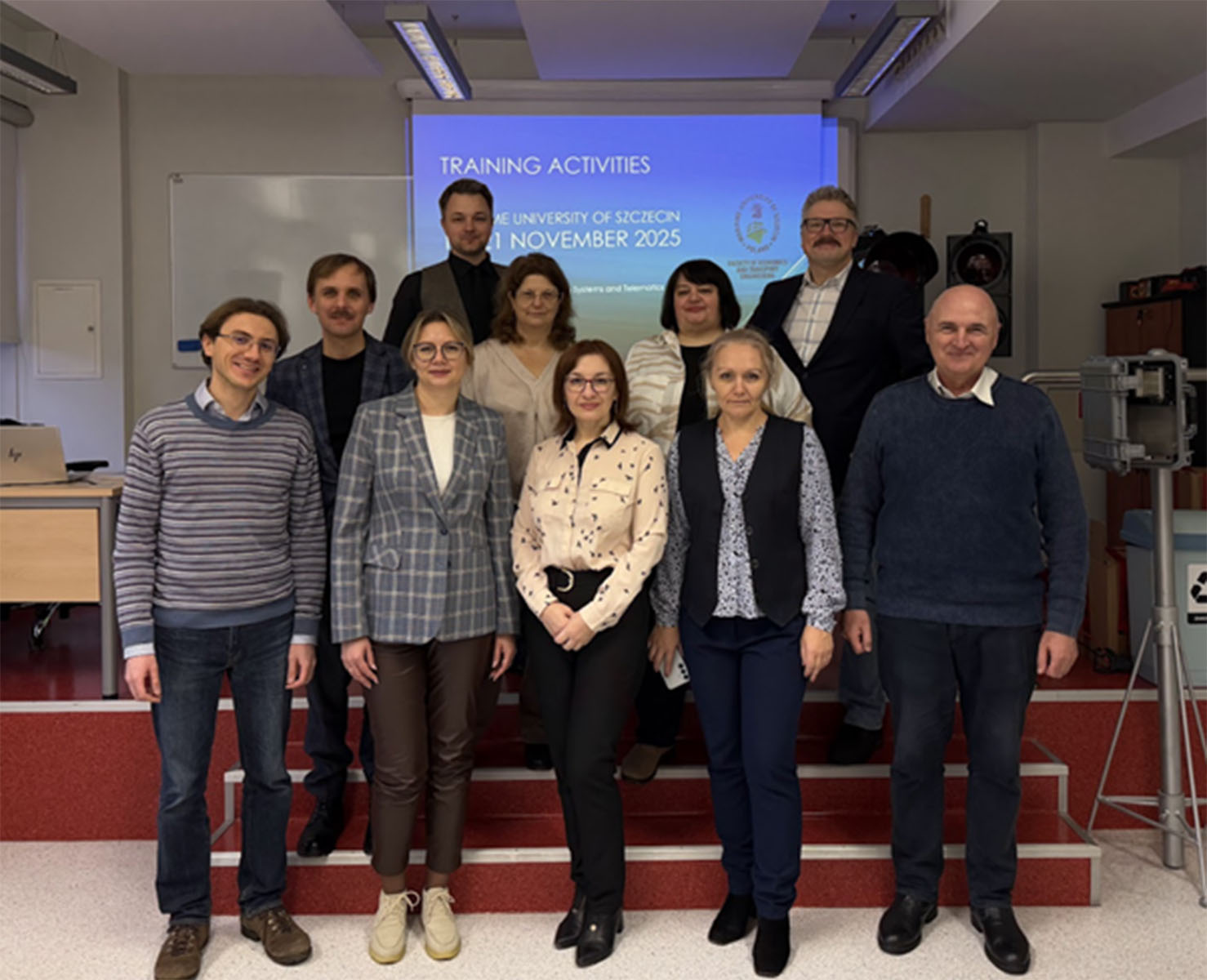
Sessions were conducted on image processing and data analysis in urban logistics. Under the supervision of Artur Kujawski, the participants worked with materials obtained from unmanned aerial vehicles, acquired methods of digital reconstruction of urban areas, learned image segmentation algorithms, and explored approaches to assessing traffic flows in the urban environment.


An important part of the programme was the introduction to 3D simulation environments. The lecture and practical module were delivered by Tomasz Dudek, who presented the fundamental principles of simulation platforms, the possibilities for modelling transport systems, and examples of how such tools can be applied in research and educational activities.
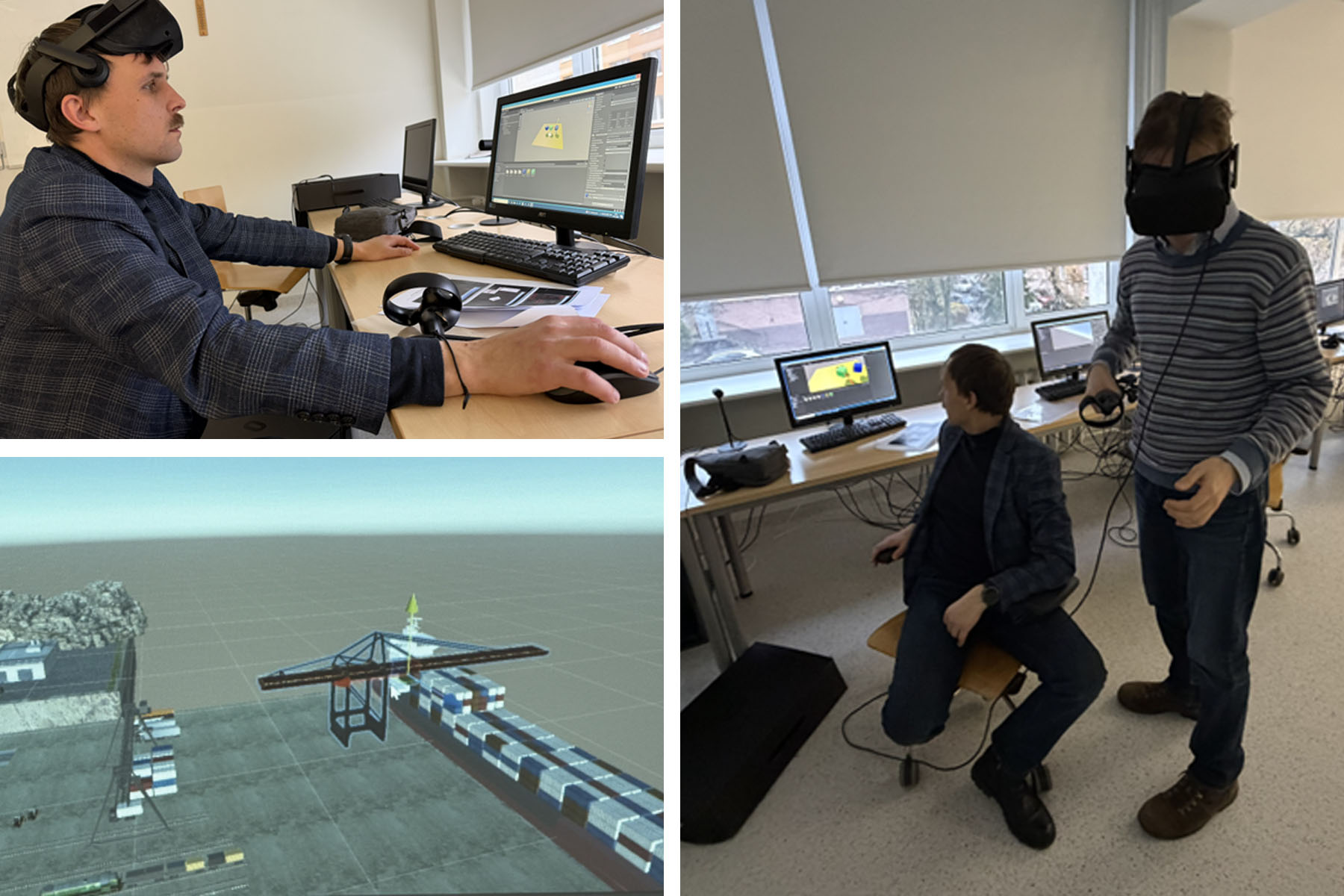
Karolina Kaśkosz conducted laboratory sessions dedicated to the components and operation of sorting equipment, methods of collecting and analysing logistics data, as well as the identification of RFID devices and working with the corresponding software. The participants became familiar with the equipment and gained practical skills in using automated logistics technologies widely applied in modern transport and warehouse systems.
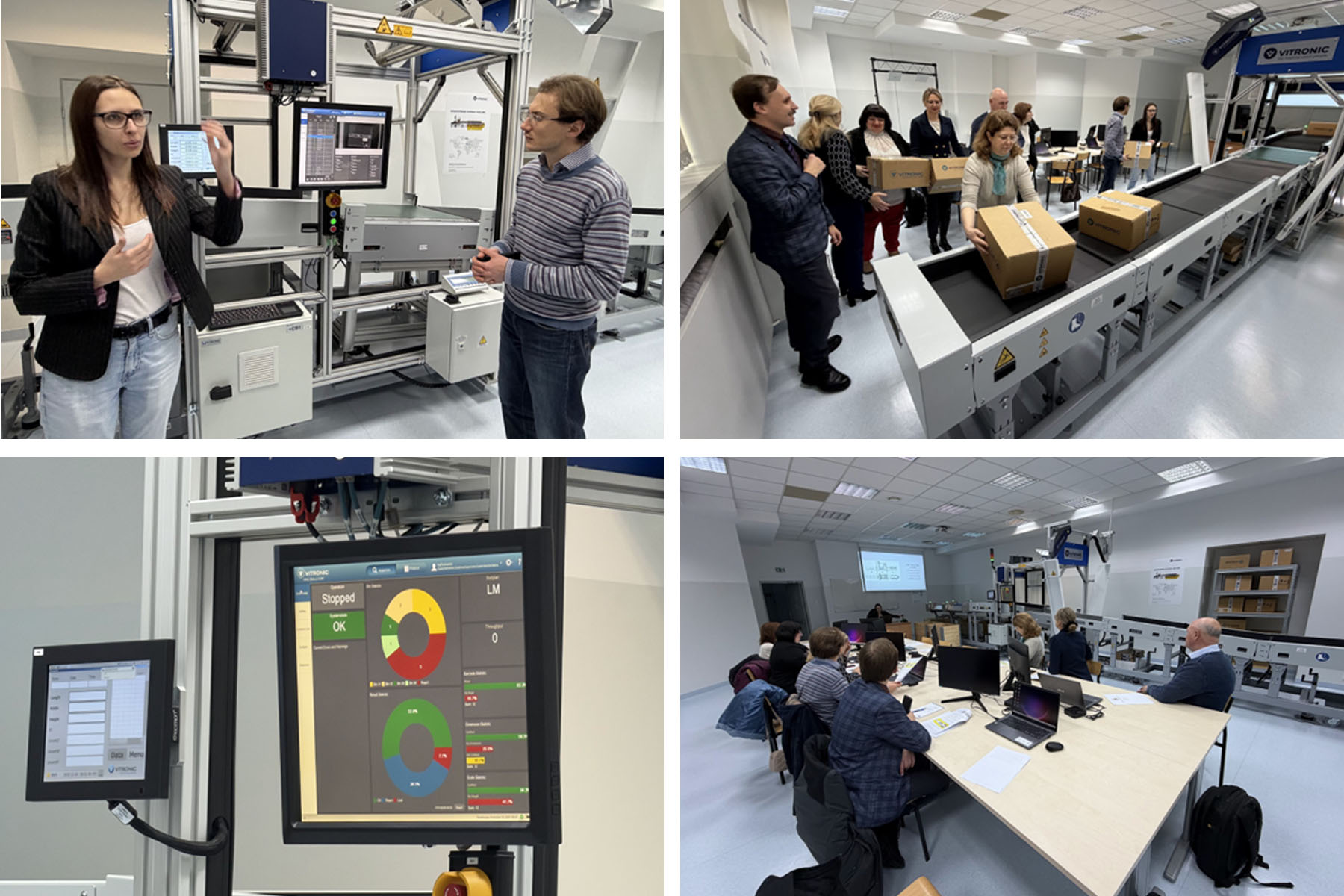
Participants worked in the laboratory, where they carried out practical tasks related to studying vehicle emissions and their impact on the aquatic environment, as well as examining cargo properties and methods of chemical and sanitary control. During the sessions, they became familiar with the laboratory’s capabilities and analysed the nature of pollution caused by transport.
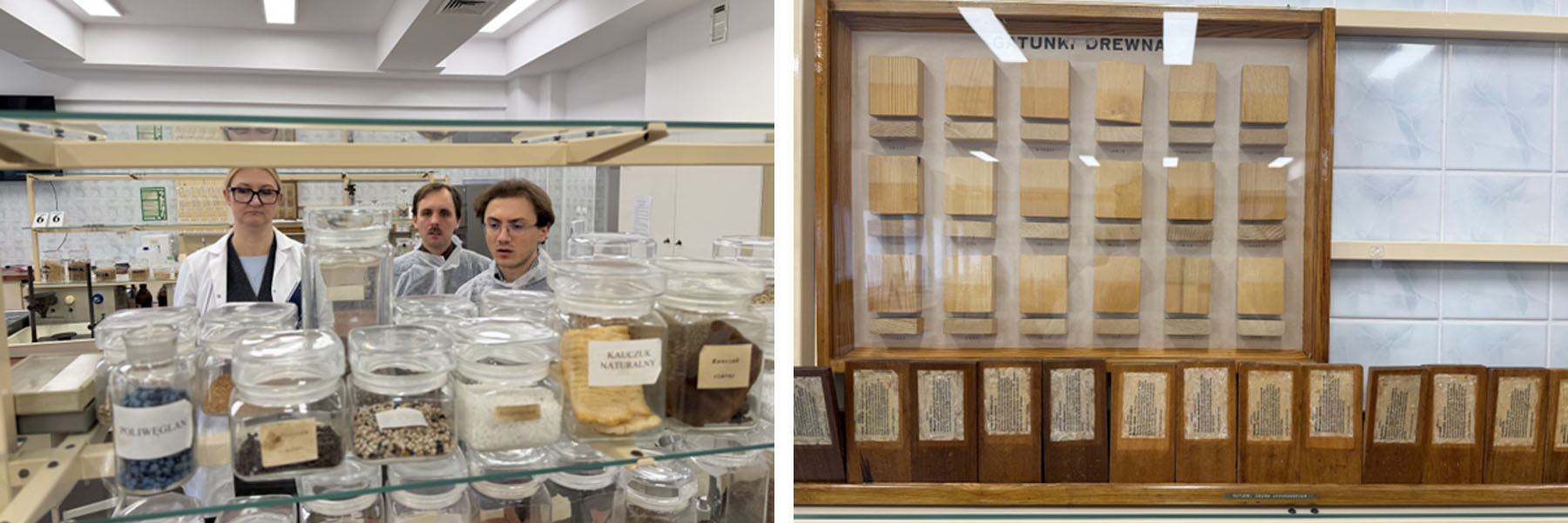
A separate part of the programme was the visit to the electromobility laboratory, where the participants became acquainted with charging technologies, the features of electric propulsion systems, and infrastructural solutions for electric transport.
The final day of the training was dedicated to professional familiarization with real navigation systems and intelligent monitoring technologies. The participants visited the Inland Navigation Authority RIS Monitoring Centre, where they learned about the operation of the river navigation system, real-time digital vessel traffic monitoring, and the principles of functioning of intelligent transport systems.
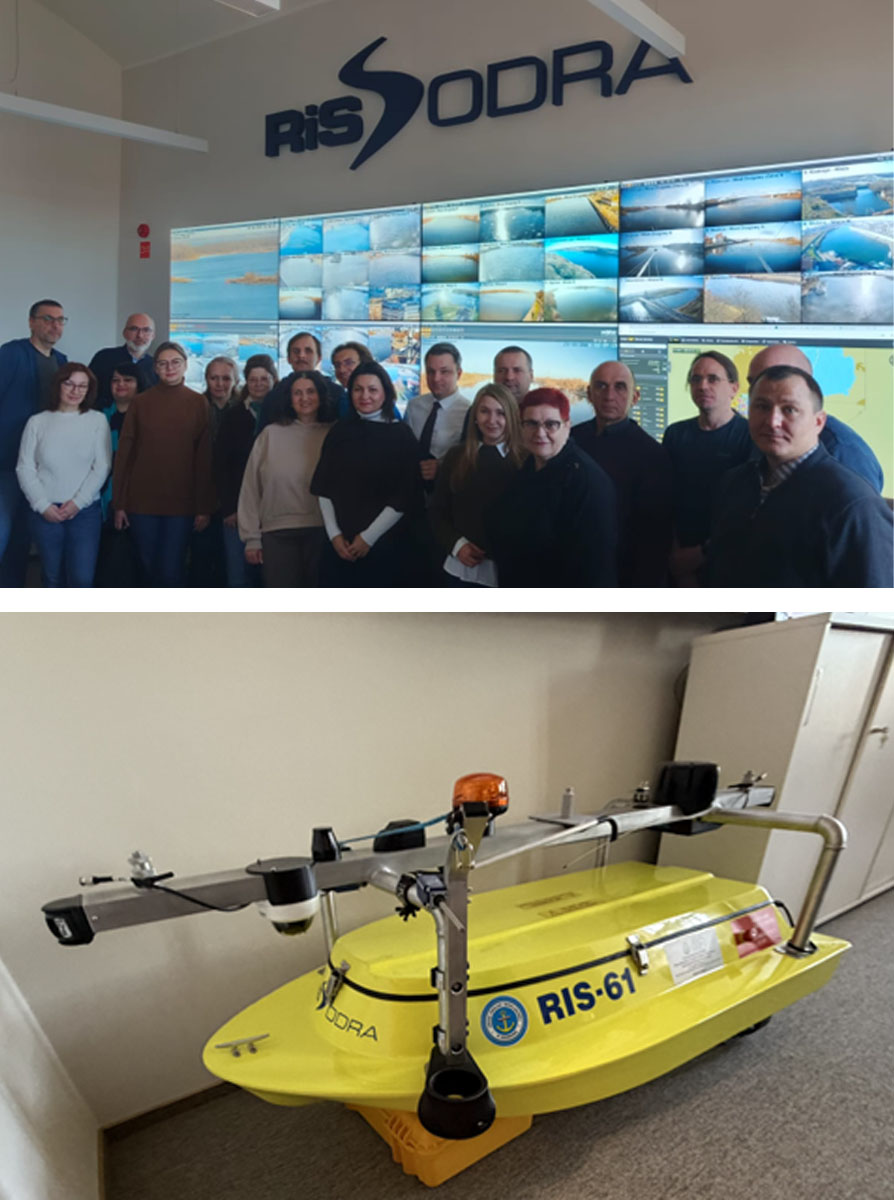
The final stage was a visit to the training vessel MUS Ship Navigator XXI, where the participants observed the operation of onboard systems and navigation complexes and gained practical knowledge about modern automated solutions in the field of maritime transport.
The international mobility within the ISDEGO project became an important opportunity for the participants to gain comprehensive practical experience in working with modern transport technologies, digital platforms, measurement systems, and equipment. The outcomes of the training will contribute to strengthening the capacity of the participating universities to implement modern educational approaches and will enhance the quality of bachelor training in transport in accordance with the Sustainable Development Goals. They will also deepen academic and professional cooperation between partner universities, reinforce the integration of European experience into educational programmes and research projects, support the development of students’ competencies in transport modelling, logistics, environmental monitoring, and intelligent transport systems, and promote the creation of new academic courses as well as the improvement of existing ones.




















